|
|
|
|
Nau mai haere mai
In just a few days, New Zealand will get the final results of the 2023 election. It was clear on the night the National Party would be leading the next government. But the lingering question has been whether the right-wing coalition of National and ACT would be able to govern alone - or require the help of Winston Peters’ NZ First to get over the required 61-seat majority.
It all comes down to the 567,000 special votes. These have traditionally swung left, adding seats to Labour and the Greens. It’s expected that 2023 will follow the same pattern.
As Adrian Beaumont explains, the most likely outcome of the special vote count is a three-headed coalition, led by National and including ACT and NZ First.
Does this mean there is no chance of National and ACT governing alone? Well, Beaumont has done the math and it is possible, but unlikely.
There is plenty more to read here and on our homepage, including a look at how different crops can reduce the risks of wildfires on agricultural landscapes.
Until next time, mā te wā.
|

|
Debrin Foxcroft
Deputy New Zealand Editor
|
|

Adrian Beaumont, The University of Melbourne
Ahead of Friday’s final election results, the most likely outcome is National and ACT will need to add NZ First to form a right-wing coalition government. These are the results and seats to watch.
|
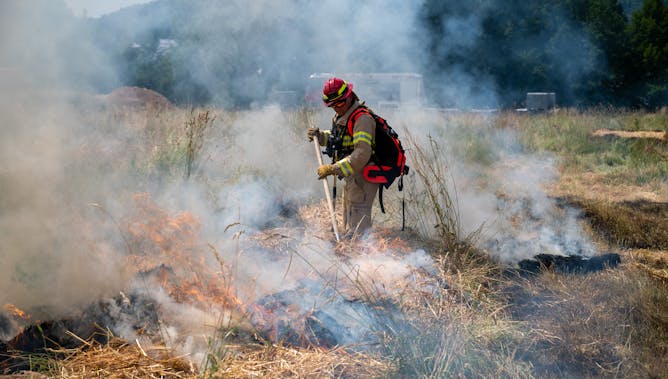
Tim Curran, Lincoln University, New Zealand; Md Azharul Alam, Lincoln University, New Zealand; Tanmayi Pagadala, Lincoln University, New Zealand; Thomas Maxwell, Lincoln University, New Zealand
Redesigning agricultural landscapes to plant fire-retardant crops could help mitigate wildfires in an increasingly fire-prone world.
|

Bernard Walker, University of Canterbury; Danaë Anderson, Te Herenga Waka — Victoria University of Wellington; Julienne Molineaux, Auckland University of Technology
Bringing together worker, business, and government representatives helped set clearer rules for everyone on public holidays. We need to try that same approach to lift NZ’s poor productivity.
|
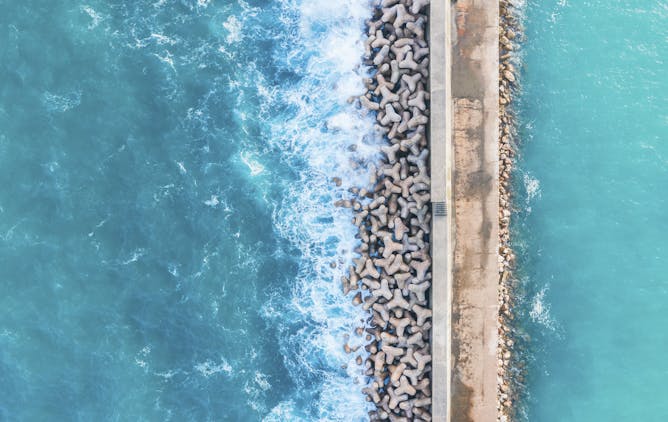
Ritodhi Chakraborty, University of Canterbury; Claire Burgess, University of Canterbury
Preliminary findings show that managed retreat, structural flood protection and climate-resilient development projects are most at risk of maladaptation.
|
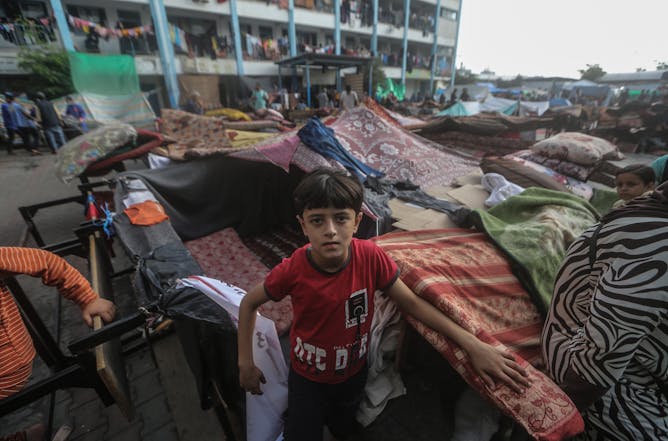
Alexander Gillespie, University of Waikato; Robert G. Patman, University of Otago
Liberal democracies need to work with the countries in the Middle East to build a long-term solution to the ongoing Israel-Gaza crisis.
|

Clive Thompson, University of Cape Town
A conflict resolution expert – and rugby fan – explains how the game can restore spectacle and avoid farcical and dangerous mismatches due to players being sent off.
|

Rebecca McKenzie, Malaghan Institute of Medical Research
Considered a pipe dream not too long ago, research on RNA therapeutics is progressing rapidly. Now a new manufacturing protocol will help researchers to advance the technology.
|

Alexandra Sims, University of Auckland; Trish O'Sullivan, Massey University
Manufacturers have too much legal freedom to sell products that don’t last or are hard to repair. It’s time local law caught up with global efforts to address this environmental and consumer issue.
|
From our foreign editions
|
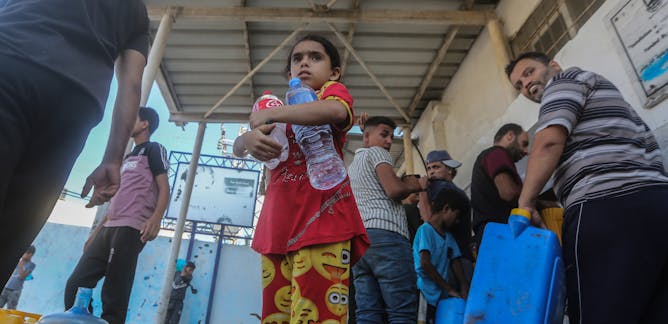
Clive Lipchin, Tel Aviv University; Richard Friend, University of York
As the war between Hamas and Israel grinds forward, two experts explain how Israelis and Palestinians have cooperated to tackle their region’s water challenges.
| |
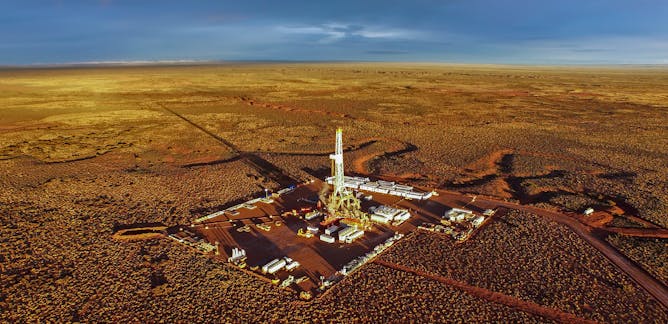
Bill Hare, Murdoch University
In May, the Northern Territory government greenlit the mammoth Beetaloo Basin fracking project. But they did so based on a report with optimistic projections on offsets and emissions.
|
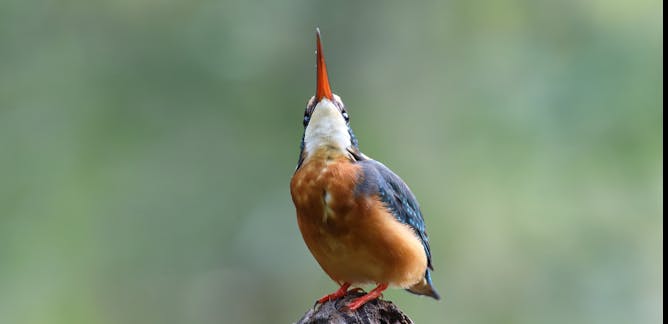
Stephen Garnett, Charles Darwin University; Aaron M. Lien, University of Arizona
Only after a species is identified and listed by taxonomists can it be protected. Yet we still don’t have one globally agreed-upon list of every species. A new 74-nation survey points to the solution.
| |
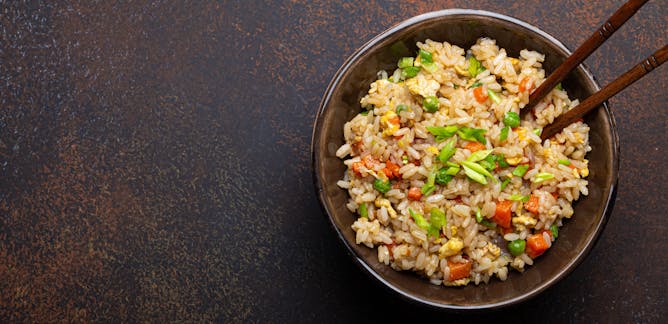
Enzo Palombo, Swinburne University of Technology
‘Fried rice syndrome’ refers to food poisoning from a bacterium called Bacillus Cereus, which becomes a risk when cooked food is left at room temperature for too long.
|
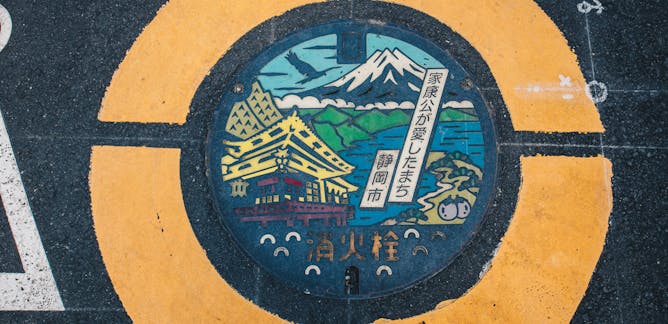
Martyn Smith, University of Sheffield
These popular street ornaments speak to a 1960s urban planning philosophy as well as to the commodification of nostalgia.
| |
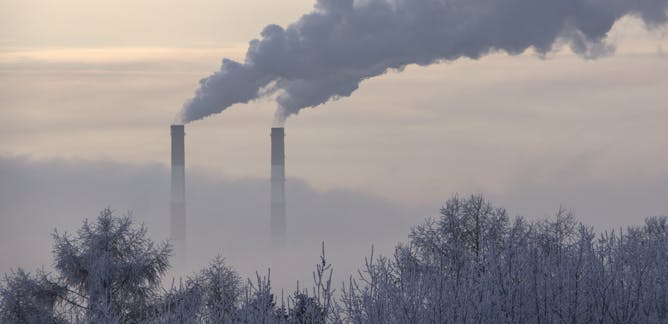
Chris Smith, University of Leeds; Robin Lamboll, Imperial College London
For a two-in-three chance of staying within 1.5°C, the budget shrinks to one-and-a-half years.
|
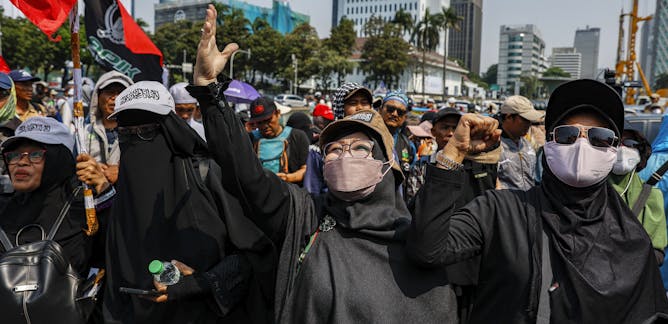
Nikita Sud, University of Oxford
The international quest for green energy is reliant on ‘sacrificial zones’ in developing countries.
| |
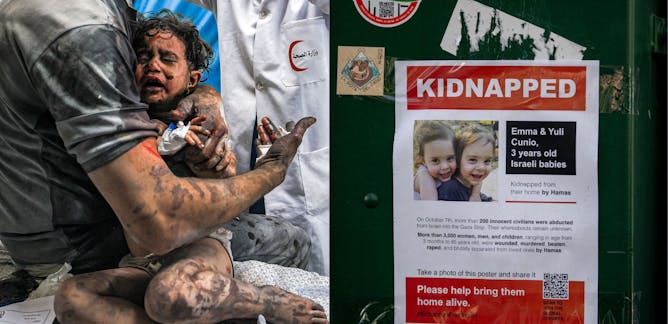
Omer Bartov, Brown University
For Jewish people, Hamas’ violence against children was reminiscent of the Holocaust. For Palestinians, The Israel Defense Force’s killing their children reminds them of a painful past, too.
|
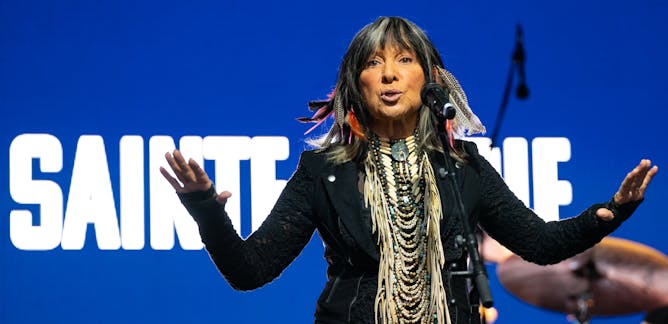
Lori Campbell, University of Regina
The CBC report on iconic singer Buffy Sainte-Marie’s ancestry is having deep impact in multiple ways across Indigenous lands across Canada.
| |
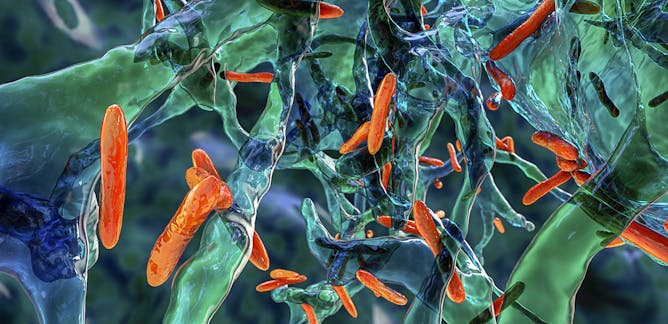
Charles Shey Wiysonge, Stellenbosch University
In 2021 10.6 million people developed TB and 1.6 million died from the disease. Now, for the first time in 100 years, there are promising signs of a vaccine breakthrough.
|
|
|
| |
| |
| |
| |
|
|
|
|
|
|
|